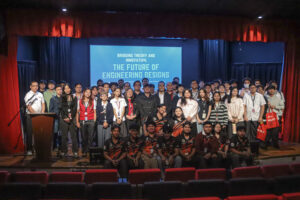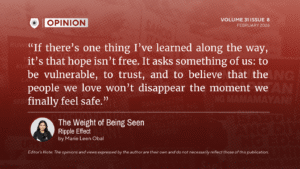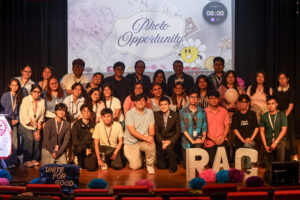By Angela Marie B. De Leon | December 28, 2023
Bean There, Done That: Love Thy Consumer, Loathe the Commerce
IS spending extended hours in coffee shops socially acceptable? Have you ever immersed yourself in work or study at a local café or perhaps just enjoying coffee while hanging out? A debate on the Coffee Shop Culture in the Philippines has been circulating — prompting reflection on the unspoken norms surrounding this practice. Is it seen as a genuine appreciation of the coffee shop atmosphere, or does it tread on the boundaries of acceptable patron behavior?
Filipino netizens were triggered when Scottish vlogger, Dale Philip, posted a TikTok video criticizing Filipinos as loungers and trying hard to be ‘digital nomads’ in coffee shops. He posted a video where he exclaimed that he was supposed to drop by Starbucks to buy a Matcha Frappuccino, but there was a big queue of people. He commented that it would be a disadvantage for coffee shops to have customers who merely buy one coffee but use its facilities limitlessly. Despite all that, netizens had different responses on the said issue.
Coffee Culture in the Philippines
Drinking coffee has always been cultural in the everyday lives of Filipinos. According to a study by Laurico et al. (2021), 80% of Filipinos drink an average of 2 cups of coffee daily. In the 18th century, the Philippines was one of the world's largest coffee producers. Notably, the Philippines comes in second as Asia's largest coffee consumer. Starbucks is leading with the highest sales compared to other shops.
For Filipinos, drinking coffee is one way to begin formal discussions or a social bond. Inviting someone over for a coffee can mean different things for us. One can be a coffee for catching up with friends or chit-chat with acquaintances. It can also be a form of relaxation or reward. Not only that, it is also used by Filipinos to engage their love interest. As remote work was introduced to the country, people could work anywhere besides a central office provided by their employer.
Missing Pieces
With the issue inflaming, some netizens made remarks that the root cause of this is the lack of people-owned spaces or public libraries that are supposed to be provided by the State. Indeed, the lack of public libraries is a problem to be addressed by the government. People-owned spaces are hardly found because the government focuses more on building housing for residential or commercial purposes. This inadequacy was overlooked within the government’s struggle to face the country’s ceaseless problems.
To Critique Whom
Heated comments by the netizens were continuously being thrown at Philip because of his criticism. Netizens’ opinions were backlashing. It involved different perspectives, and neither was right nor was wrong. However, it should be observed that it is a matter of how the business controls its customers.
In coffee shops, either for social gatherings, studying, or working, Filipinos use it to connect with one another. This issue should not focus on the shops’ lack of measures or how many cups of coffee a customer buys but on the people’s lack of initiative and unanimity. Different perspectives were laid out, but one question remains: is spending extended hours in coffee shops socially acceptable?
Volume 29 | Issue 2




